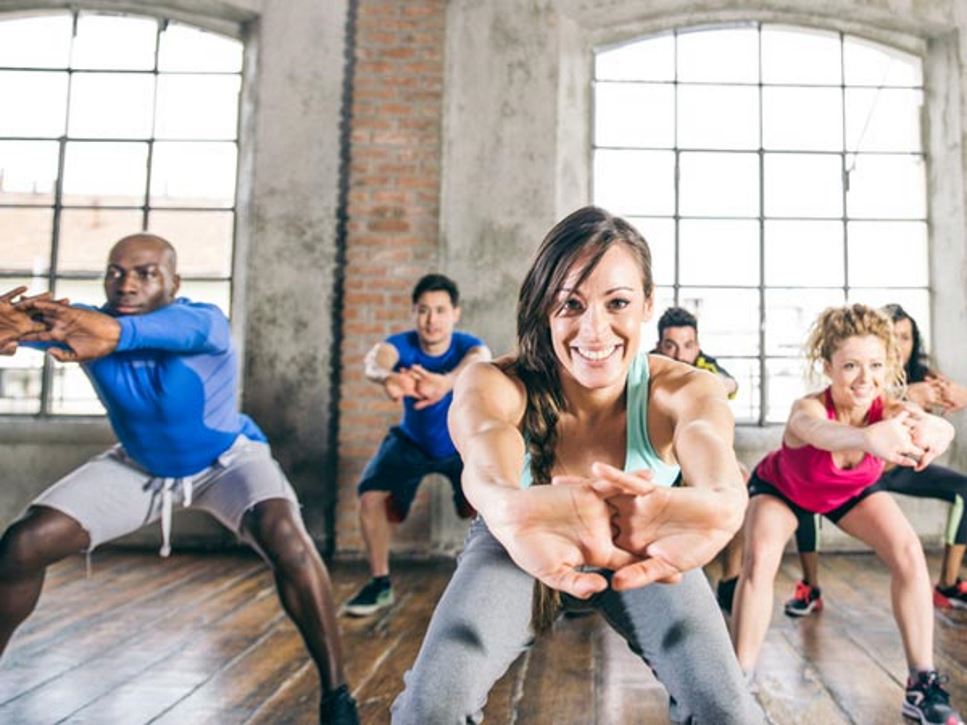Which is better fuel for spinning class: protein or carbohydrates? Should you consume a sports drink on a long run? Is it safe to eat before a workout? Listen to locker room talk at the gym and you'll hear lots of conflicting tips about what you should eat and drink before and after you work out. These answers to five common questions about fueling your workout can help separate fact from fiction.
Will Protein Make My Muscles Grow?
Protein is an important part of a balanced diet, but eating more protein will not magically make you stronger. The only way to grow muscles is to put them to work and eat the right amount of calories to build mass. Most people can get enough protein from food alone and do not need a supplement.
Carbohydrates are the major fuel for muscles and an athlete's diet should consist of mostly carbohydrate. The body converts carbohydrate to glycogen, which is stored in your muscles to power your workout.
Do Sports Drinks, Gels and Energy Bites Live Up to the Hype?
There's nothing special about the many sports drinks, gels and energy bites on the market. But it is important to replace lost fluids as well as provide carbohydrates to maintain blood glucose levels while working out for longer than one hour.
For some athletes, eating solid food in the middle of a workout can cause digestive upset. In these cases, easily consumed sports gels, chews or drinks may help. Food and fluid intake around workouts should be determined on an individual basis. Considerations include an athlete's tolerance, as well as the duration and intensity of the workout.
Is It Best to Work Out on an Empty Stomach?
Your body needs fuel to function, especially if you're asking it to run, jump, swim or lift weights. Don't skip breakfast before a morning workout. Eating before exercise, as opposed to exercising in the fasted state, has been shown to improve exercise performance.
Eating in the morning helps replenish liver glycogen and steadies blood sugar levels. If it's hard to stomach solid food first thing in the morning, try a fruit smoothie or a liquid meal supplement, and don't forget to hydrate before you exercise.
Regular Exercise Means I Can Eat What I Want and Not Gain Weight, Right?
Wrong. It's easy to overestimate the amount of calories you burn while working out.
You should adjust your calorie intake if you're engaging in serious training, such as for a triathlon, where you might be working out more than once a day. Recovery nutrition is necessary if you are an athlete participating in strenuous activity, especially if you are participating in multiple events in the same day. For the casual exerciser working out for an hour or less, a healthy balanced diet will work just fine.
Is Chocolate Milk Really an Athlete's Best Friend?
Because of its favorable carbohydrate and protein content, chocolate milk is indeed an effective recovery aid, but it's not your only choice. Replacing fluid lost during a workout should be your first priority. Plain water and water-rich foods such as fruit are good choices. Be sure to eat a balanced meal within a couple hours of working out to help muscles recover. For strenuous workouts, carbohydrates should be consumed within 30 minutes of finishing the workout. This can be done with a sports drink or a carbohydrate-rich snack such as a fruit smoothie.
References
Find a Nutrition Expert
Looking for credible nutrition information and recommendations? The Academy of Nutrition and Dietetics' network of credentialed food and nutrition practitioners are ready to help!

